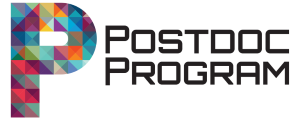Los Alamos Distinguished Postdoc Fellows
Contact
Los Alamos Distinguished Postdoctoral Fellows
Carl Fields
Feynman Distinguished Postdoctoral Fellow
Computer, Computational and Statistical Sciences Division: Computational Physics and Methods (CCS-2)
 Education: Ph.D. Michigan State University - Astronomy and Astrophysics; B.S. Arizona State University - Physics and Astrophysics
Education: Ph.D. Michigan State University - Astronomy and Astrophysics; B.S. Arizona State University - Physics and Astrophysics
Mentor: Joshua Dolence
Research: Carl's research focuses core-collapse supernova explosions and their massive star progenitors, stellar evolution and nucleosynthesis, and astrophysical sources of gravitational waves. He works on developing state-of-the-art computational and numerical methods for hydrodynamic simulations. These hydrodynamic models can directly impact the qualitative properties of massive stars and their stellar explosions. Stellar explosions can produce multi-messenger signals capable of being detected by current and next-generation astrophysical observations. Groundbreaking observational efforts, such as the LIGO observatory and the Super-K neutrino detector, benefit directly from our work. At LANL, Carl will be involved in ongoing development of next-generation large-scale computational tools capable of utilizing exa-scale machines to answer some of the largest questions of our Universe.
Bio: Carl earned his PhD working with Professor Sean Couch. He was supported by a National Science Foundation Graduate Research Fellowship and a FORD Foundation Predoctoral Fellowship during his time at MSU. In December 2020, Carl was named to the prestigious Forbes 30 Under 30 for Science list. In the fall of 2020, He was awarded the Dr. Pliny A. and Margaret H. Price Prize recognizing research excellence and exceptional promise in areas related to Ohio State University Center for Cosmology and Astroparticle Physics initiatives. Fields was also named to the Inaugural class of the Edward A. Bouchet Graduate Honor Society chapter at MSU in 2019. For his B.S., he worked with Professor Frank Timmes on stellar evolution models.
Luke Johns
Feynman Distinguished Postdoctoral Fellow
Nuclear and Particle Physics, Astrophysics and Cosmology (T-2) and Computer, Computational and Statistical Sciences Division: Computational Physics and Methods (CCS-2)
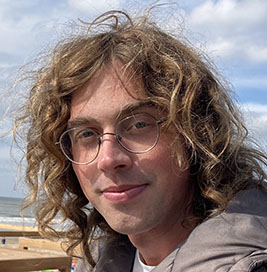
Mentors: Joe Carlson, Chris Fryer and Mark Paris
Research: Luke's research interests center on neutrino physics and include various sites and subjects that overlap with it: supernovae and neutron-star mergers, the early universe, beyond-Standard-Model phenomenology, and quantum dynamics and transport. His work is motivated above all by the mysteries and consequences of neutrino mass.
Bio: Before arriving at LANL, Luke was a NASA Einstein Fellow at UC Berkeley. He received his PhD in 2020 from UC San Diego.
Scott Lawrence
Feynman Distinguished Postdoctoral Fellow
Nuclear and Particle Physics, Astrophysics and Cosmology (T-2)
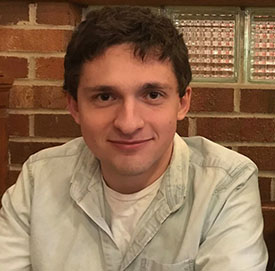 Education: Ph.D. University of Maryland, College Park - Physics; B.S. University of Maryland, College Park - Computer Science
Education: Ph.D. University of Maryland, College Park - Physics; B.S. University of Maryland, College Park - Computer Science
Mentors: Duff Neill, Tanmoy Bhattacharya and Rajan Gupta
Research: Scott’s research focuses on the development of novel algorithms for the study of strongly coupled matter, including machine learning, quantum computing, and convex relaxation methods.
Bio:Scott completed his Ph.D. at the University of Maryland, College Park under Paulo Bedaque, and subsequently worked as a postdoc under Paul Romatschke at the University of Colorado Boulder.
Mark Ross-Lonergan
Oppenheimer Distinguished Postdoctoral Fellow
Physics Division: Applied and Fundamental Physics (P-2)
Physics Division: Nuclear and Particle Physics and Applications (P-3)
Theoretical Division: Nuclear and Particle Physics, Astrophysics and Cosmology (T-2)
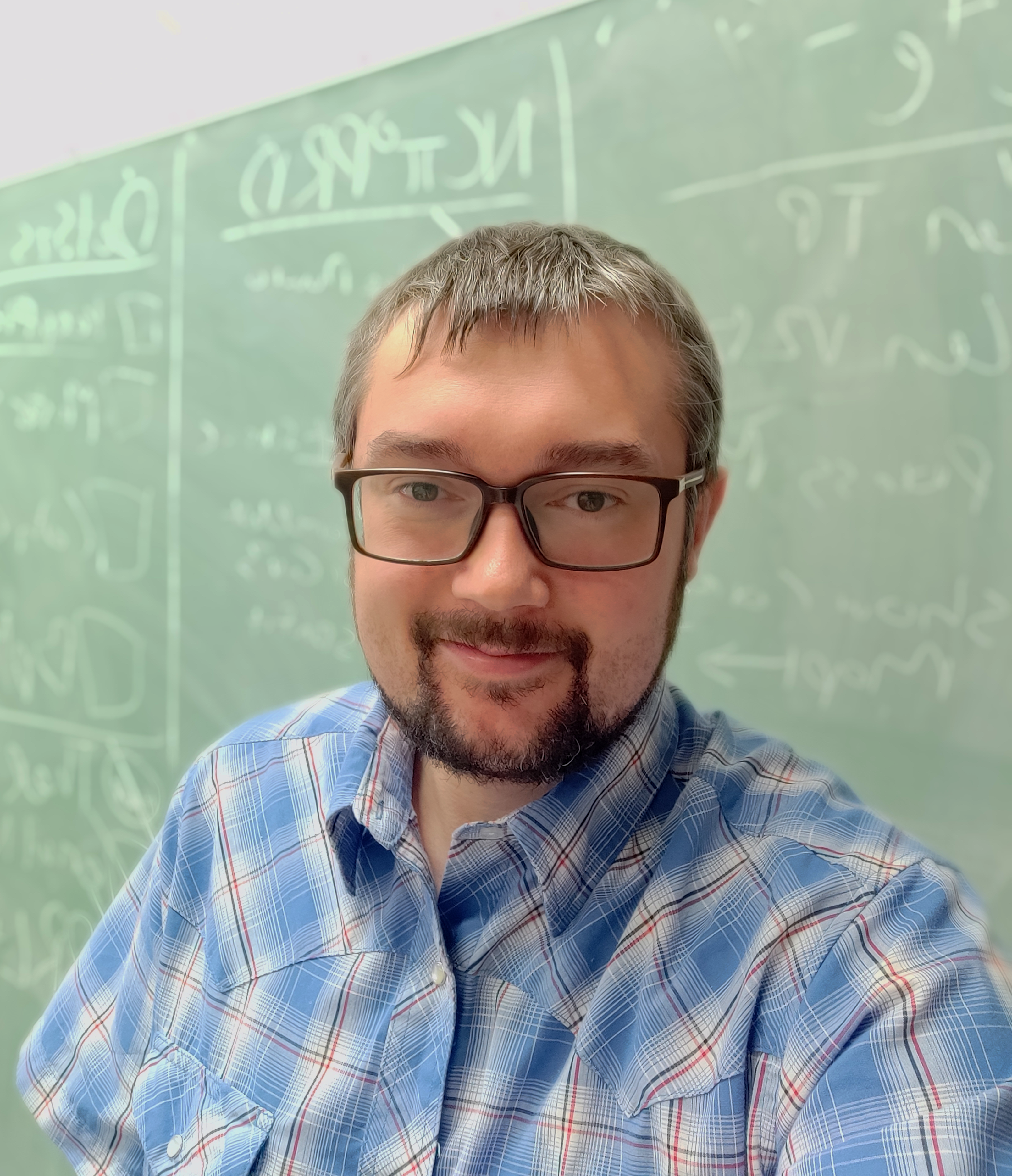 Education: Ph.D. in Neutrino Phenomenology - University of Durham; MASt in Applied Maths - University of Cambridge; B.Sc. in Theoretical Physics - University College of Dublin
Education: Ph.D. in Neutrino Phenomenology - University of Durham; MASt in Applied Maths - University of Cambridge; B.Sc. in Theoretical Physics - University College of Dublin
Mentors: Sowjanya Gollapinni, Richard Van de Water, William Louis and Daniele Alves-Spier
Research: Mark's recent research has revolved around the various anomalous experimental results that have arisen in the Neutrino sector, which provide tantalizing hints to exciting and exotic physics beyond the Standard Model, such as the existence of a so-called "Sterile Neutrino''. Mark led the team on the Liquid Argon Time Projection Chamber (LArTPC) experiment MicroBooNE which recently released the first flagship results directly probing one such long-standing anomaly, the "Low-Energy Excess" observed by MiniBooNE. By developing advanced tools for the reconstruction and identification of single photons in a LArTPC, Mark and his team were able to successfully reject one of the leading explanations of this striking anomaly, that it consists of underestimated background photons. The precision and immense background rejection that was developed for this result highlights that we have reached a watershed moment, achieving a level of detail and sophistication never before seen in the neutrino sector. At LANL, Mark will continue to probe these anomalies to discover what truly lies at the heard of this puzzle, developing and searching for exciting new models that can explain the anomalies, in which sterile neutrino's couple to a "dark sector'' opening the door for a host of novel phenomenological effects.
Bio: Mark began his academic career in Neutrino Theory with a PhD under the mentorship of Professor Silvia Pascoli as part of the prestigious EU Marie Curie Initial Training Network, "Invisibles'', focusing on the rich and varied phenomenology that sterile neutrinos exhibit across energy scales. It was during a visit to Fermilab to collaborate with leading neutrino theory experts, hosted under a Neutrino Physics Center Fellowship, that Mark first was directly introduced to the wealth of experimental efforts underway. After several fruitful collaborations with both theory and experimental colleagues during his PhD, Mark made the jump to experimental neutrino physics joining the short-baseline neutrino community as a post-doc under a Ernest Kempton Adams Research Fellowship at Columbia University. Marks ongoing research has led him to be convener of the neutrino oscillation and "Low-Energy Excess'' working group in the MicroBooNE collaboration.
Ronen Weiss
Oppenheimer Distinguished Postdoctoral Fellow
Theoretical Division: Nuclear and Particle Physics, Astrophysics and Cosmology (T-2)
 Education: Ph.D. and M.S. in Physics and B.S. in Physics and Mathematics - Hebrew University of Jerusalem
Education: Ph.D. and M.S. in Physics and B.S. in Physics and Mathematics - Hebrew University of Jerusalem
Mentors: Joseph Carlson, Vincenzo Cirigliano and Stefano Gandolfi
Research: The focus of Ronen's research work is the study of nuclear short-range correlations, i.e. the effects resulting from few nucleons (protons and neutrons) coming very close to each other. Understanding the short-range structure of nuclei is important for gaining a full description of nuclear systems. During his PhD studies, Ronen developed the generalized contact formalism (GCF), which provides a coherent picture of the dynamics of two-body nuclear short-range correlations and enables quantifying their effects on various nuclear quantities. Using the GCF it is possible to directly compare ab-initio structure calculations and the underlying nucleon-nucleon interaction with electron-scattering data. Ronen's work had a significant impact in the field and the GCF is now implemented as an important tool used directly by leading experimental groups. At LANL, Ronen will work on making the GCF into a systematic expansion, including the description of the elusive correlated triplets. With such a progress, it will be possible to use the GCF to provide predictions regarding broad aspects of nuclear systems, including neutrinoless double beta decay and neutrino scattering.
Bio: Ronen completed his PhD under the mentorship of Professor Nir Barnea. Ronen was the first student in the local research group to study the field of short-range correlations, and as a result it has become one of the main topics studied in this group. In his research work, Ronen has collaborated with leading world-wide experts, both theoreticians and experimentalists. He was awarded several prizes and scholarships for his achievements in research, including the Racah prize of the Israel Physical Society, the Clore scholarship, Wolf scholarship and the Pazy foundation prize for PhD students, the Goodman prize of the Racah Institute in the Hebrew University. Along with his research, Ronen also enjoyed his work as a teaching assistant in the physics lab and electricity and magnetism courses for undergraduate students, for which he was also awarded an excellence prize.
Ka Ho Yuen
Oppenheimer Distinguished Postdoctoral Fellow
Theoretical Division: Nuclear and Particle Physics, Astrophysics and Cosmology (T-2)
Theoretical Division: Fluid Dynamics and Solid Mechanics (T-3)
 Education: Ph.D. in Astronomy – University of Wisconsin-Madison; B.S. in Physics - Chinese University of Hong Kong
Education: Ph.D. in Astronomy – University of Wisconsin-Madison; B.S. in Physics - Chinese University of Hong Kong
Mentors: Hui Li and Susan Kurien
Research: Ka Ho’s research focuses on the physical properties of galaxy clusters, which is an essential input for the studies of cosmological structure formation. Galaxy clusters are the largest gravitationally bounded cosmic structures in the Universe, and they play essential roles in our understanding of cosmology. However, the classical model for galaxy clusters predicts a rapid cool-down of its surrounding intra-cluster medium (ICM), which is in contradiction to observation. At LANL, he will work in answering the possible mechanisms in keeping ICM warm via start-of-the-art numerical simulations. This work is expected to greatly enhance our physical models of galaxy cluster formation and evolution, which is a cornerstone of modern cosmology. Furthermore, this work allows LANL to have first-hand advantage for the next-generation telescopes such as Square Kilometer Array and the recently launched James Webb telescope.
Bio: Ka Ho received his Ph.D. in Astronomy under the mentorship of Professor Alex Lazarian, a well-recognized expert in theoretical turbulence studies. Before joining Professor Lazarian’s group, Ka Ho received the prestigious Fulbright Scholarship to visit the research group and established the first few classical works on one of the most powerful magnetic field tracing techniques in the astrophysical community – The Velocity Gradient Technique (VGT). As a result, it has become one of the flagship topics in this group. His dissertation research covers a wide range of theoretical and numerical topics related to astrophysical turbulence and magnetic fields in interstellar media. He was awarded several prizes and scholarships for his research achievements, including the C.N.Yang scholarship and the Jansky award. Ka Ho is also a well-known figure in astrophysical magnetic field community as the organizer of the Midwest Magnetic Field Workshop since his tenure in Madison.
LOS ALAMOS NATIONAL LAB NAMED FELLOWS
*Harold Agnew National Security Postdoctoral Fellows pursue cutting-edge experimental, theoretical, computational science, and engineering research aligned with the national security mission. Appointments are for two years and full funding is provided. The Weapons Program provides the funding for these appointments.
*Mark Kac Postdoctoral Fellows in Applied Mathematics pursue cutting-edge research in DOE-relevant areas of applied mathematics. Up to one Fellowship is selected each year. The DOE Office of Applied Scientific Computing Research (ASCR) and the Center for Nonlinear Studies (CNLS) jointly sponsor these appointments.
Zoe Holmes
Mark Kac Postdoctoral Fellow
Computer, Computational and Statistical Sciences Division: Information Sciences (CCS-3)
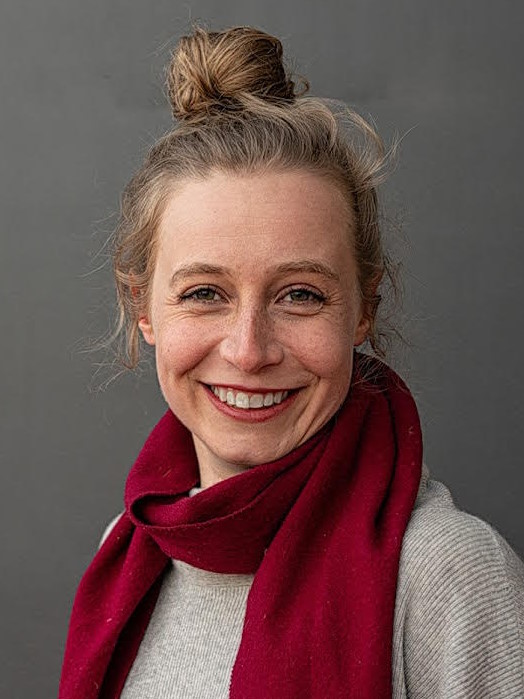 Education: Ph.D. in Physics – Imperial College London; B.S. in Physics - University of Oxford
Education: Ph.D. in Physics – Imperial College London; B.S. in Physics - University of Oxford
Mentor: Andrew Sornborger
Bio: Zoë Holmes received in 2015 her MPhil degree in Physics and Philosophy from the University of Oxford. In 2016 she obtained her MRes (Master of Research) from the Imperial College London, where in 2019 she got her PhD in quantum thermodynamics. In 2021 she started as a Mark Kac Applied Mathematics Fellow Postdoctoral Researcher at Los Alamos National Laboratory (USA) working on quantum algorithms and quantum machine learning methods for Noisy Intermediate-Scale Quantum (NISQ) computers. Since August 2022 she is Tenure Track Assistant Professor of Physics at EPFL.
Eric Tovar
Mark Kac Postdoctoral Fellow
Computational Physics Division: Eulerian Codes (XCP-2)
Theoretical Division: Fluid Dynamics and Solid Mechanics (T-3)
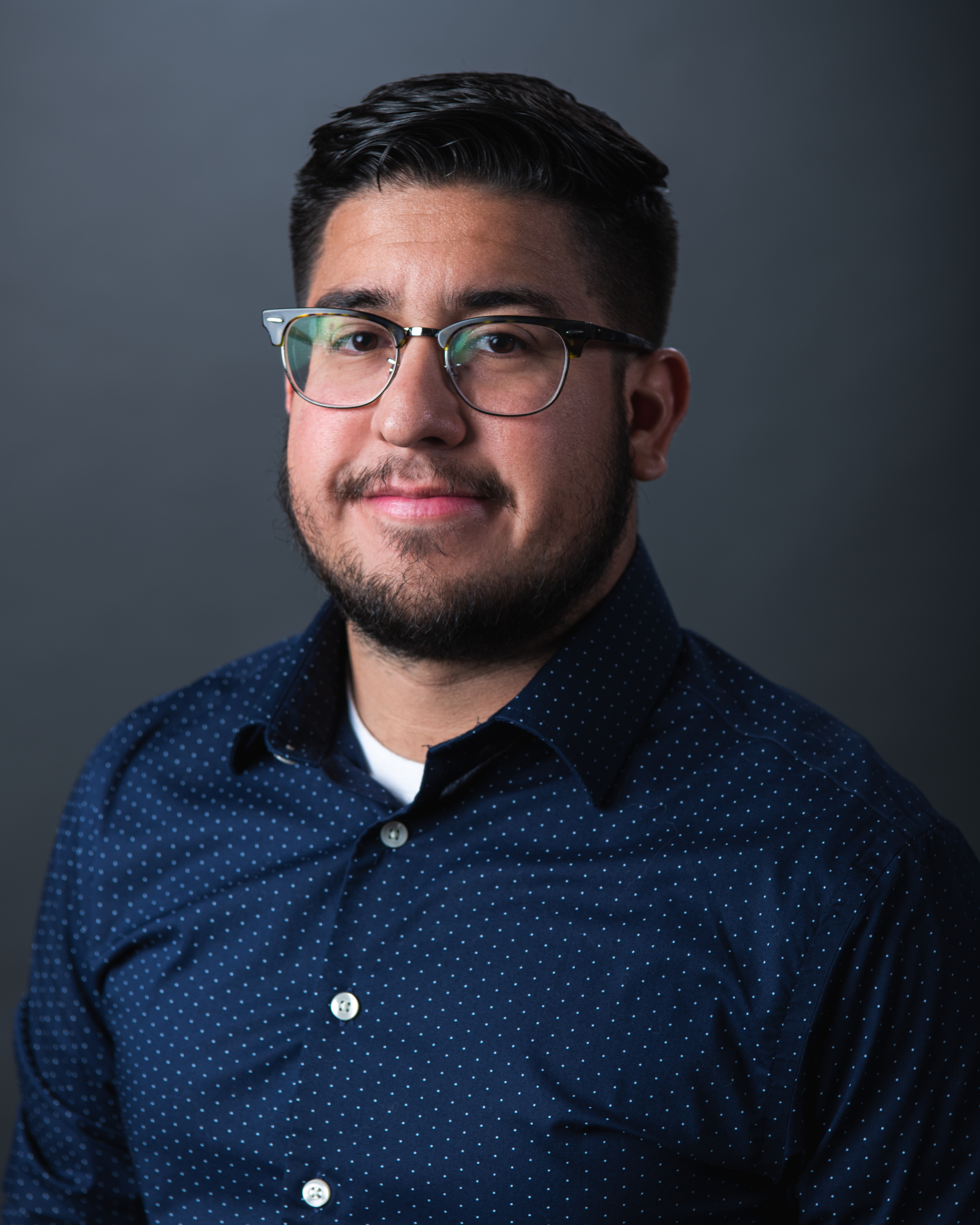 Education: Ph.D. in Mathematics and Computer Science – Texas A & M University; B.S. in Physics - University of Texas
Education: Ph.D. in Mathematics and Computer Science – Texas A & M University; B.S. in Physics - University of Texas
Mentor: Jeffrey Peterson and Roseanne Cheng
Bio: Postdoctoral researcher Eric Tovar (XCP-2) joined LANL in January 2022 and was awarded the Mark Kac Postdoc Fellow appointment in Applied Mathematics in May 2022. Eric received his B.S/M.S in Mathematics from the University of Texas—Rio Grande Valley and his Ph.D. in Mathematics from Texas A&M University. Under his Mark Kac Fellowship, he studies and develops robust numerical methods for computational hydrodynamics. Utilizing a foundation of mathematical models and thermodynamic consistency, he aims to create approximation techniques that produce credible simulations relevant to DOE initiatives.
*Chick Keller Postdoctoral Fellows in Space and Earth Science pursue cutting-edge experimental, theoretical, computational, and engineering research covering one of the four Center for Space and Earth Science (CSES) Science Disciplines: Astrophysics and Cosmology, Space Science, Solid Earth Geoscience and Climate Science. Initial appointment is for two years and is funded thru CSES.
*Nicholas C. Metropolis Postdoctoral Fellows pursue cutting-edge research in the areas of computational and computer science, physics, and engineering. Computer simulation capabilities are developed in support of the stockpile stewardship program together with broader national nuclear security needs. Selected candidates will have access to the most powerful supercomputers in the world. The Advanced Simulation Computing (ASC) Program provides the funding for these appointments. Appointments are for two years and full funding is provided.


